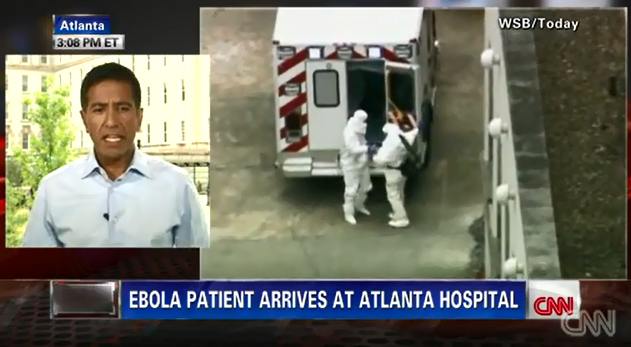so its pretty much like going to a Justin Bieber concert!
Even worse; a Justin Bieber and Miley Cyrus mega concert.
so its pretty much like going to a Justin Bieber concert!
The doc was on his deathbed, literally dying, and they gave him the super-secret experimental vaccine. It stopped all the progression, and he was able to walk a day later. The second infected American improved, but not on the same level as the doc. That is why they brought them here, to study them.
IF the NYC patient tests positive for Ebola, it will be the first stateside case and that will likely lead to more. We shall see.
The doc was on his deathbed, literally dying, and they gave him the super-secret experimental vaccine. It stopped all the progression, and he was able to walk a day later. The second infected American improved, but not on the same level as the doc. That is why they brought them here, to study them.
IF the NYC patient tests positive for Ebola, it will be the first stateside case and that will likely lead to more. We shall see.

I hereby nominate JoLee1868 as the best new member I have read all day. Thanks for the insight.
Do they expect these two Americans to actually live after being infected with Ebola?
Are they getting one of the test treatments? And if so, why not offer that same treatment to all the hundreds of people dying of it in Africa?
....or maybe I answered my own question...
And now it's in the U.S.
Enter your email address to join: